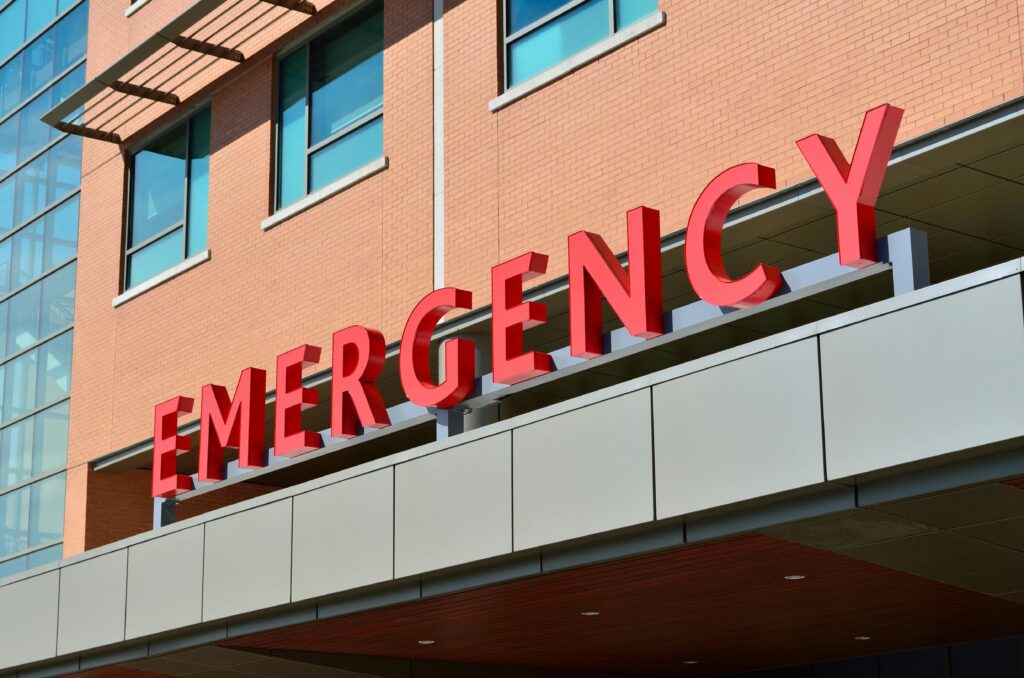
Making a decision about where to seek medical care can be daunting, especially when faced with an unexpected health issue. Whether it’s a persistent cough, a sudden injury, or something in between, choosing between a hospital and an urgent care clinic is crucial for receiving the right treatment promptly. However, understanding which option best fits your situation isn’t always straightforward. This guide aims to clarify these choices by offering clear insights into when you should head to a hospital versus when urgent care is more appropriate.
Severity
When you’re deciding between hospital emergency rooms and urgent care centers, assessing the severity of your condition is key. Hospitals are equipped to handle life-threatening emergencies such as chest pain, severe abdominal pain, stroke symptoms, and major trauma. If you experience any of these symptoms, it’s imperative to call 911 or head directly to the ER. On the other hand, urgent care facilities are ideal for non-life-threatening issues like minor fractures, infections, sprains, or cuts requiring stitches. These centers can offer quick relief without the extensive wait times often found in busy emergency departments.
Time Sensitivity and Accessibility
Time is often a critical factor when choosing between a hospital and an urgent care center. If your condition is life-threatening or deteriorates rapidly, going to a hospital is essential due to their ability to provide immediate, comprehensive care. Hospitals operate 24/7, which makes them accessible at any time, day or night. On the other hand, urgent care centers are more accessible in terms of shorter wait times and are typically open during extended hours, though not always 24 hours a day. It’s important to assess how quickly you need medical attention and whether accessibility, such as location and opening hours, aligns with your needs.
Cost Implications
The financial aspect cannot be overlooked when considering medical options. Generally speaking, visiting an urgent care center tends to be less expensive than an emergency room visit due to lower overhead costs and shorter treatment durations for non-emergency conditions. Reviewing your insurance plan can provide insight into co-pays and coverage differences between these two options; however, remember that no cost comparison outweighs getting appropriate care during true emergencies.
Available Treatments and Services
When choosing between a hospital and an urgent care center, knowing the types of treatments and services each facility offers can help guide your decision. Hospitals are equipped to provide a full spectrum of medical services, including surgery, specialized diagnostics, and intensive care units for critical conditions. In contrast, urgent care centers address a range of acute, non-life-threatening medical issues. They typically offer services such as X-rays, splinting for minor fractures, stitches for cuts, and treatment for common illnesses like flu, ear infections, or urinary tract infections.
Personal Comfort Levels
Your personal comfort and confidence in the care you receive is an important factor in deciding between a hospital and an urgent care center. Some individuals may feel more at ease in a hospital setting, where they know specialized equipment and personnel are available should complications arise. Conversely, urgent care centers often provide a more relaxed atmosphere that some people find less intimidating than a bustling hospital environment. These centers typically offer a more personalized approach due to shorter wait times and less crowded facilities.
Deciding between a hospital and an urgent care center is a crucial step in ensuring you receive the most appropriate medical care for your situation. By carefully considering factors such as the severity and time sensitivity of your condition, costs involved, available treatments, and your own comfort level, you can make an informed choice that prioritizes your health and well-being. A company, one like West Ocean City Injury & Illness Center, can provide more information on the differences between hospital and urgent care clinics. Remember, when in doubt, it’s always best to err on the side of caution and seek professional medical advice.


